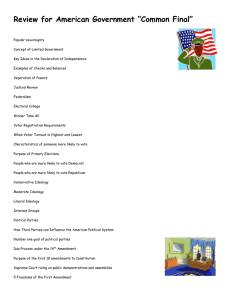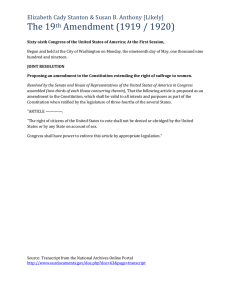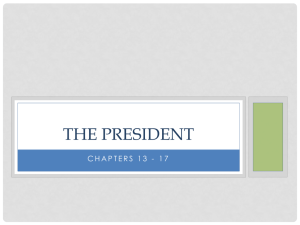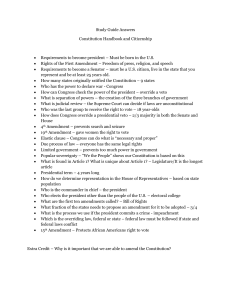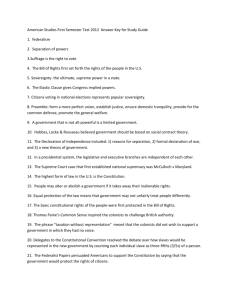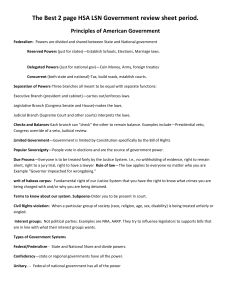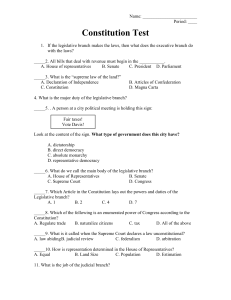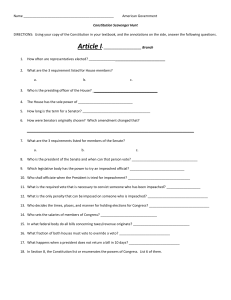Review for American Government “Common Final”
advertisement
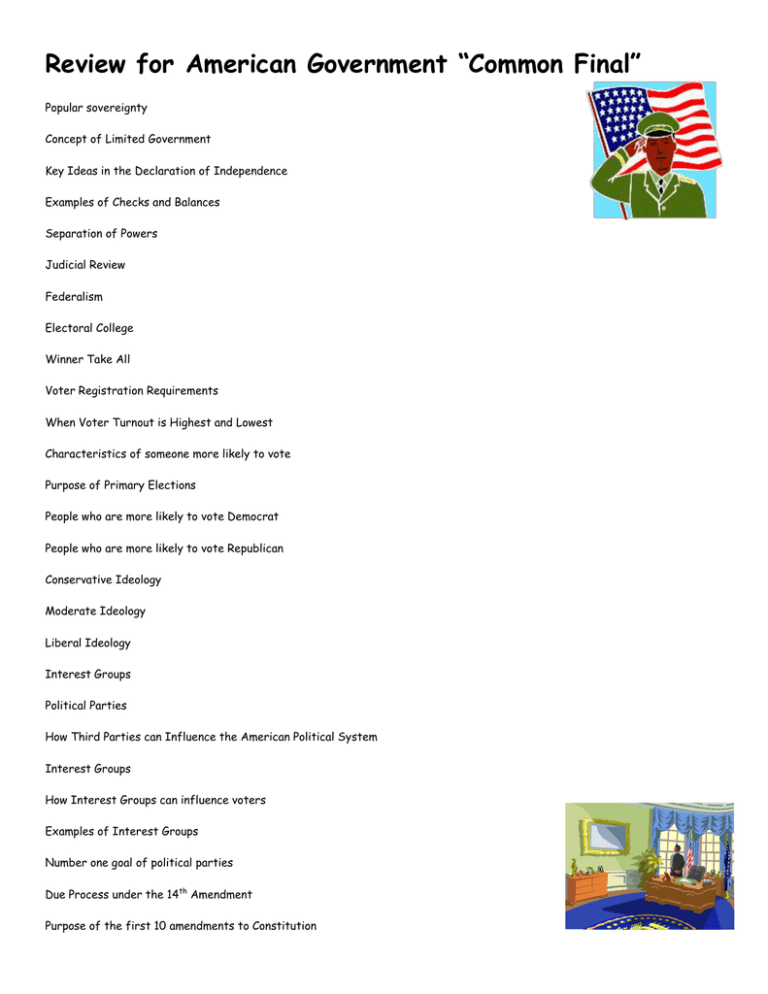
Review for American Government “Common Final” Popular sovereignty Concept of Limited Government Key Ideas in the Declaration of Independence Examples of Checks and Balances Separation of Powers Judicial Review Federalism Electoral College Winner Take All Voter Registration Requirements When Voter Turnout is Highest and Lowest Characteristics of someone more likely to vote Purpose of Primary Elections People who are more likely to vote Democrat People who are more likely to vote Republican Conservative Ideology Moderate Ideology Liberal Ideology Interest Groups Political Parties How Third Parties can Influence the American Political System Interest Groups How Interest Groups can influence voters Examples of Interest Groups Number one goal of political parties Due Process under the 14th Amendment Purpose of the first 10 amendments to Constitution Supreme Court ruling on public demonstrations and assemblies 5 Freedoms of the First Amendment Establishment Clause Libel Slander Prior Restraint Shield Laws Length of term for a Senator Differences between the House of Representative and the Senate Steps of How a Bill Becomes a Law Why Congress Creates Standing Committees Nonlegislative powers of Senate War Powers Granted to Congress Why we have a bicameral Congress Typical trend for approval ratings for a president Qualifications to become President Line of Presidential Succession Duties given to the Vice President in the Constitution What a President Can Do if a Bill Lands on His Desk How the President can use armed forces abroad What Material is addressed by each of the Executive Departments Terms and Appointment of Federal Judges Where the majority of federal cases are heard Rule of Four Majority Opinion Concurring Opinion Dissenting Opinion Original Jurisdiction




